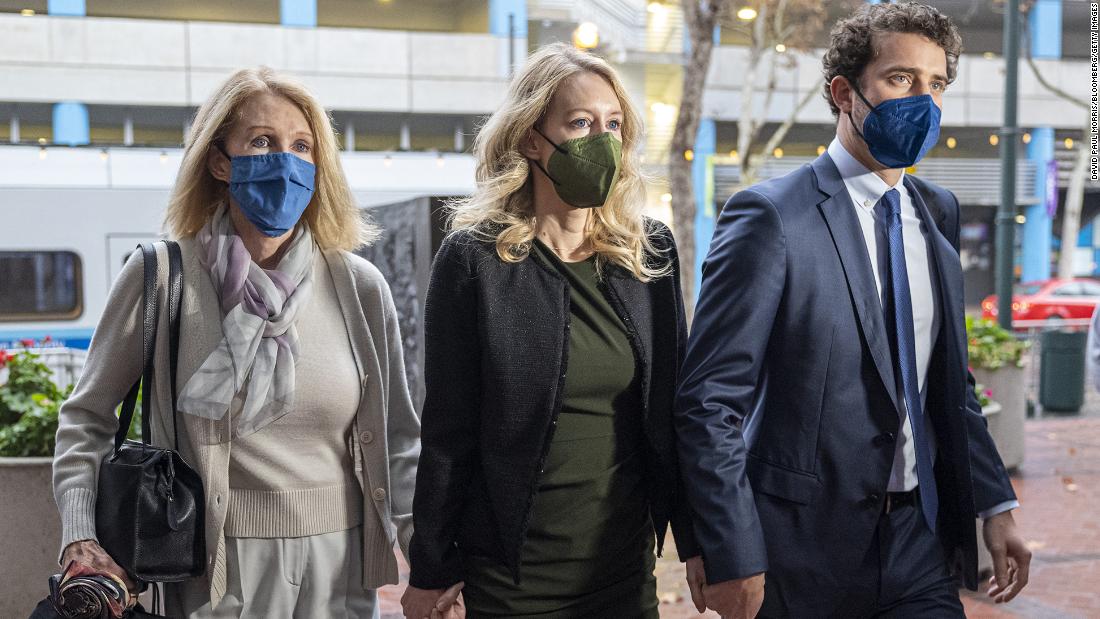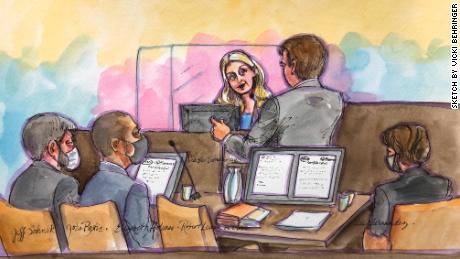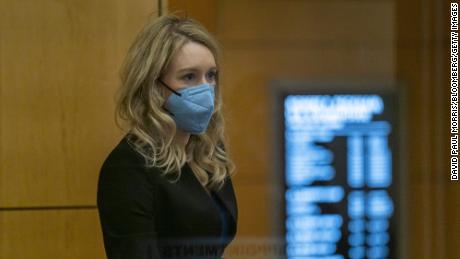Here’s what you need to know to catch up as the jury begins to deliberate.
Holmes dropped out of Stanford at age 19 to work on Theranos. Roughly a decade later, in 2013, she took the veil off the company, courting press and announcing a retail partnership with Walgreens. Theranos claimed to have invented technology that could accurately and reliably test for a range of conditions with just a few drops of blood.
Holmes raised $945 million from the likes of media mogul Rupert Murdoch, the billionaire family of former Secretary of Education Betsy DeVos and the Waltons, heirs to the Walmart fortune. At its peak, Theranos catapulted to a $9 billion valuation, making Holmes a paper billionaire. She struck up retail partnerships with Walgreens and Safeway, was lauded on magazine covers and hailed as the next Steve Jobs, a comparison she helped foster by wearing a signature black turtleneck (something she hasn’t worn in the courtroom).
The government’s case against her
Holmes now faces nine counts of federal wire fraud and two counts of conspiracy to commit wire fraud. She faces up to 20 years in prison as well as a fine of $250,000 plus restitution for each count of wire fraud and each conspiracy count. She has pleaded not guilty.
The government called 29 witnesses to testify, including former Theranos employees, retail executives, investors, patients, and even a former Secretary of Defense who once served on the company’s board. With that testimony, federal prosecutors attempted to show how Theranos concealed its blood testing practices, overstated its financial situation, misled investors about the state of partnerships and leveraged the media to perpetuate its claims.
Among the evidence introduced: Holmes’ personal texts messages as well as internal emails, investor presentations, and press interviews. The government also introduced reports affixed with logos of major pharmaceutical companies that numerous witnesses testified they believed had been prepared by the companies and indicated an endorsement of Theranos’ technology, when in fact the reports were prepared by Theranos.
Witnesses also testified they’d been told by Holmes that the company’s technology was being used by the military and on medical evacuation helicopters, something that — despite Theranos’ desire to do so — never happened. Witnesses testified they were unaware Theranos wasn’t relying on its proprietary blood analyzer device for testing.
“Why did this fraud work? How did it work? A big part of it was borrowed credibility,” prosecutor John Bostic said in his rebuttal to the defense’s closing arguments on Friday. “Ms. Holmes borrowed the credibility of pharmaceutical companies, of Walgreens, of the illustrious members of the board, of the press … and the military.”
“By attaching herself to these individuals and organizations,” he continued, “she bolstered Theranos’ own credibility, and by exaggerating those contexts, she caused others to believe that Theranos must have the legitimacy of those other entities.”
Holmes’ defense
Holmes maintained she never acted with intent to deceive investors, doctors or patients. In a striking moment, Holmes testified she herself added pharmaceutical company logos to reports shared with investors “because this work was done in partnership with those companies and I was trying to convey that.” But Holmes also noted she heard witness testimony and wished she had “done it differently.”
Holmes presented herself as having acted in good faith to protect her company. When, for example, Theranos concealed information that it was largely relying on third-party manufactured devices to process patient tests rather than its own devices, Holmes said this was done in order to preserve “trade secrets.” Holmes also testified that she focused conversations with potential investors on the future. “They weren’t interested in today or tomorrow or next month,” she said. “They were interested in what kind of change we could make.”
At times, when pressed by the prosecution, she issued denials. Holmes claimed she didn’t say the company’s technology was deployed on military helicopters for medical use, countering earlier witness testimony. In other instances, she claimed she didn’t remember particular details.
She testified that she considered him the most important adviser to her at Theranos. “He impacted everything about who I was, and I don’t fully understand that,” she said, effectively raising the question of whether she lacked the ability to fully pull the strings at her own company.
“She gave up a college education that people would give their right arm for. She gave up her youth. She gave up her friends. She gave up her close relationship with her family,” Downey said Friday. “Why? Because she believed she was building a technology company that would change the world. That’s our story.”






